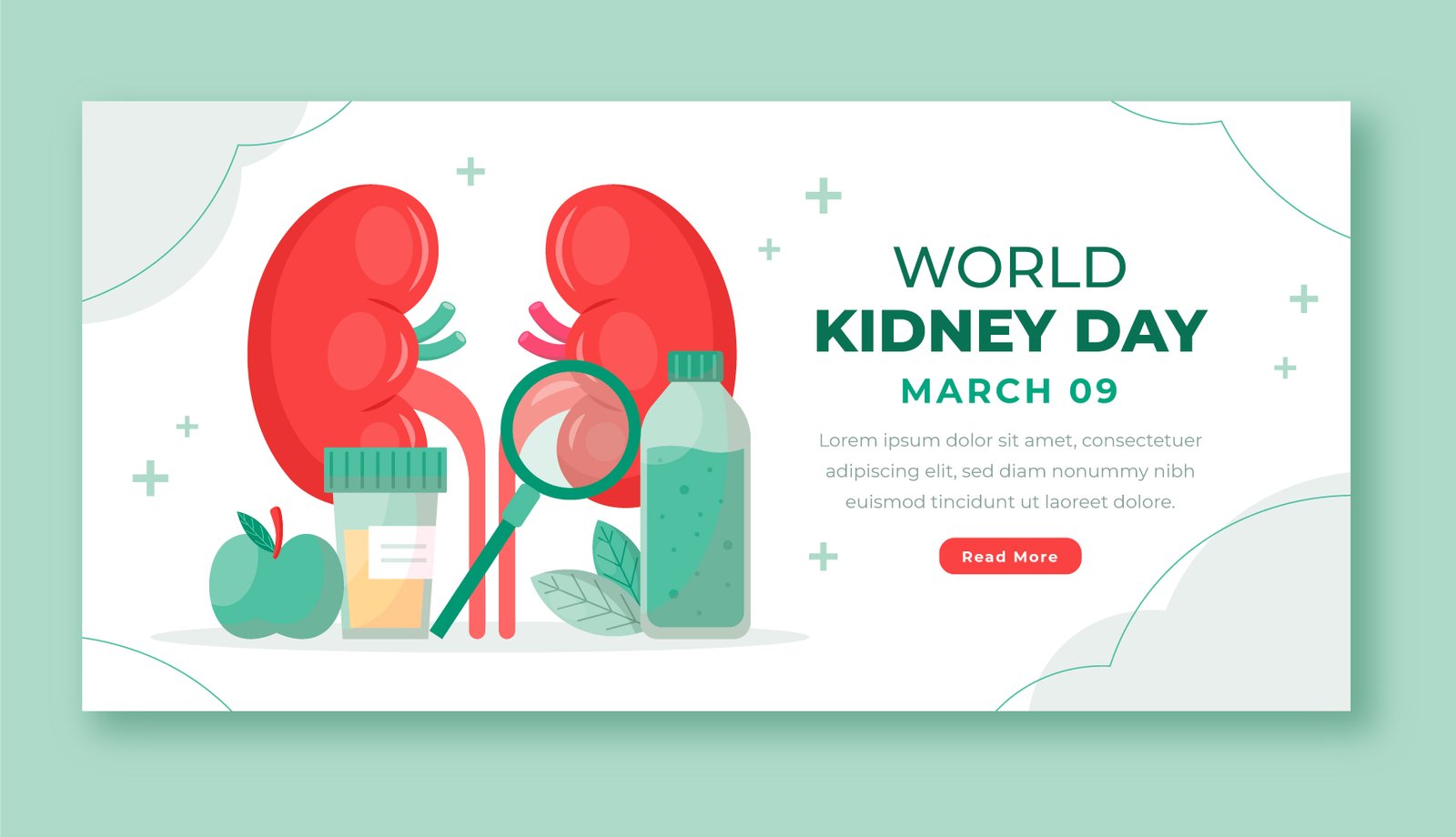
Introduction
Chronic kidney disease (CKD) is a serious and often silent condition that affects millions of people worldwide. It is characterized by the gradual loss of kidney function over time, leading to a range of health complications. The good news is that CKD is largely preventable, and through effective health promotion and disease prevention strategies, we can reduce the burden of this condition significantly. In this blog post, we will explore the importance of promoting kidney health, the risk factors associated with CKD, and practical ways to prevent it.
Understanding Chronic Kidney Disease
What is Chronic Kidney Disease (CKD)?
Chronic kidney disease, also known as CKD, is a long-term condition where the kidneys gradually lose their ability to filter waste products and excess fluids from the blood. This can lead to a buildup of harmful substances in the body, resulting in a range of health problems. CKD is often asymptomatic in its early stages, making it crucial to prioritize kidney health through preventive measures.
The Proportion of People Affected
CKD is more common than you might think. In the United States alone, approximately 37 million adults, or 15% of the adult population, have CKD to some degree. This is a significant portion of the population, highlighting the need for effective prevention and health promotion efforts.
Risk Factors for Chronic Kidney Disease
Understanding the risk factors associated with CKD is essential for its prevention. By identifying and addressing these factors, we can significantly reduce the incidence of CKD.
High Blood Pressure and Kidney Health
One of the primary risk factors for CKD is high blood pressure, also known as hypertension. When blood pressure remains elevated for an extended period, it can damage the delicate blood vessels in the kidneys, impairing their function. This connection between high blood pressure and kidney health is crucial in CKD prevention.
Diabetes and Kidney Disease
Diabetes, particularly type 2 diabetes, is another leading cause of CKD. The high levels of sugar in the blood can damage the small blood vessels in the kidneys, eventually leading to kidney dysfunction. Preventing and managing diabetes is therefore essential in preventing CKD.
Other Risk Factors
Apart from high blood pressure and diabetes, several other factors can increase the risk of developing CKD. These include smoking, obesity, a family history of kidney disease, and certain medical conditions such as lupus or polycystic kidney disease.
Health Promotion for Kidney Disease Prevention
Promoting Kidney Health in Adults
Promoting kidney health should be a priority for adults of all ages. Here are some practical steps that can be taken:
- Maintain a Healthy Diet: A balanced diet rich in fruits, vegetables, whole grains, and lean proteins can help reduce the risk of kidney disease. Reducing salt intake is crucial in managing blood pressure.
- Regular Exercise: Physical activity helps in maintaining a healthy weight and managing conditions like hypertension and diabetes. Aim for at least 150 minutes of moderate-intensity exercise each week.
- Stay Hydrated: Drinking enough water is essential for kidney function. It helps in flushing out waste products from the body.
- Limit Alcohol Consumption: Excessive alcohol intake can harm the kidneys. It’s important to drink in moderation or avoid alcohol altogether.
- Quit Smoking: Smoking can damage blood vessels, including those in the kidneys. Quitting smoking is beneficial not only for kidney health but overall health.
Screening and Early Detection
Regular health check-ups, including blood pressure and blood sugar monitoring, can help detect any abnormalities early. Detecting and managing high blood pressure and diabetes promptly can significantly reduce the risk of developing CKD.
Diabetes and Blood Pressure Management
For individuals with diabetes and high blood pressure, effective management is crucial. Medications, lifestyle changes, and regular medical follow-ups are essential in preventing kidney disease progression.
National Center for Chronic Kidney Disease Prevention
The National Center for Chronic Kidney Disease Prevention, a division of the Centers for Disease Control and Prevention (CDC), plays a vital role in promoting kidney health and preventing CKD. Their efforts include:
- Educational Campaigns: The CDC conducts various educational campaigns to raise awareness about kidney health, focusing on risk factors and preventive measures.
- Research and Data Collection: The center collects and analyzes data on CKD prevalence and risk factors to inform public health strategies.
- Public Policy Advocacy: The CDC advocates for policies that support kidney health and preventive measures, such as increased access to healthcare and healthier food options.
The Importance of Disease Prevention
Preventing chronic diseases like CKD not only benefits individuals but also has a significant impact on public health and healthcare costs. By reducing the incidence of CKD, we can alleviate the burden on healthcare systems and improve the overall quality of life for affected individuals.
Kidney-Friendly Nutrition: A Key to CKD Prevention
Importance of a Kidney-Friendly Diet
A well-balanced diet tailored to support kidney health can play a pivotal role in preventing chronic kidney disease. Explore the dietary recommendations and food choices that can help reduce the risk of CKD.
The Role of Sodium and Potassium
Learn about the significance of sodium (salt) and potassium in maintaining healthy blood pressure and kidney function. Discover practical tips for reducing sodium intake while incorporating potassium-rich foods into your diet.
Early Warning Signs and Symptoms of CKD
Recognizing the Silent Disease
Chronic kidney disease is often asymptomatic in its early stages, making it challenging to detect. Familiarize yourself with the subtle signs and symptoms that may indicate a problem with your kidney health. Early detection can be a game-changer in CKD prevention.
The Importance of Regular Kidney Function Tests
Regular check-ups and kidney function tests are critical in monitoring the health of your kidneys. Learn about common tests like GFR (Glomerular Filtration Rate) and creatinine levels and how they help identify kidney issues early.
Empowering Communities for Kidney Health
Spreading Awareness Locally
Community engagement and awareness campaigns can be powerful tools in the fight against chronic kidney disease. Discover how local organizations, healthcare providers, and individuals can work together to promote kidney health within their communities.
Supporting Kidney Health Initiatives
Explore the various ways you can get involved in kidney health initiatives, from volunteering and fundraising to advocating for policies that prioritize kidney disease prevention. Your participation can make a significant impact on the broader effort to combat CKD.
Lifestyle Modifications for Kidney Health
Exercise and CKD Prevention
Physical activity isn’t just about weight management; it also plays a direct role in kidney health. Learn how regular exercise can help reduce the risk of chronic kidney disease and support overall well-being.
Stress Management and Sleep Hygiene
Chronic stress and poor sleep can have a negative impact on kidney health and overall health. Discover effective strategies for managing stress and improving sleep hygiene, both of which contribute to preventing CKD.
Special Considerations: Kidney Health in Diabetes Management
The Diabetes-Kidney Connection
For individuals with diabetes, kidney health is of utmost importance. Delve into the specific challenges and strategies involved in managing diabetes to prevent kidney complications.
Medications and Monitoring
Understanding how certain diabetes medications can impact kidney function is essential. Learn about the medications that may require special attention and the importance of regular monitoring for those with diabetes.
Taking Charge of Your Kidney Health: Personal Stories of Prevention Success
Real-Life Inspirations
Hear inspiring stories from individuals who have successfully prevented chronic kidney disease through lifestyle changes, early detection, and proactive healthcare choices. Their journeys can offer valuable insights and motivation for readers on their own preventive paths.
Your Role in Kidney Health
Recognize the power of personal responsibility when it comes to kidney health. Encourage readers to take charge of their well-being and make informed choices to reduce their risk of chronic kidney disease.
Conclusion
Chronic kidney disease is a prevalent and serious condition that affects millions of people worldwide. However, with the right health promotion and disease prevention strategies, we can significantly reduce the risk of developing CKD. Understanding the risk factors, maintaining a healthy lifestyle, and regular screening are key components of preventing this condition. By taking proactive steps to promote kidney health, we can work towards a healthier future for ourselves and future generations. Remember, prevention is always better than cure when it comes to chronic diseases like CKD.



